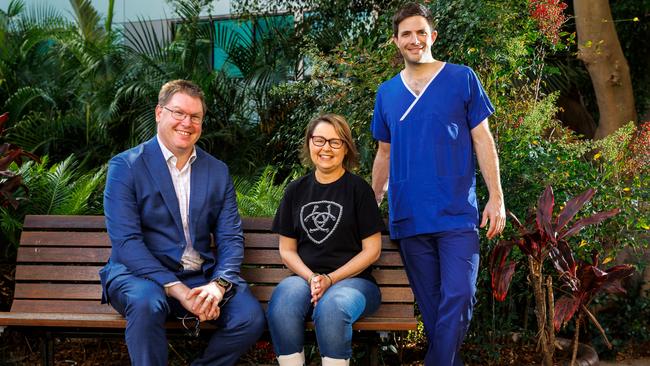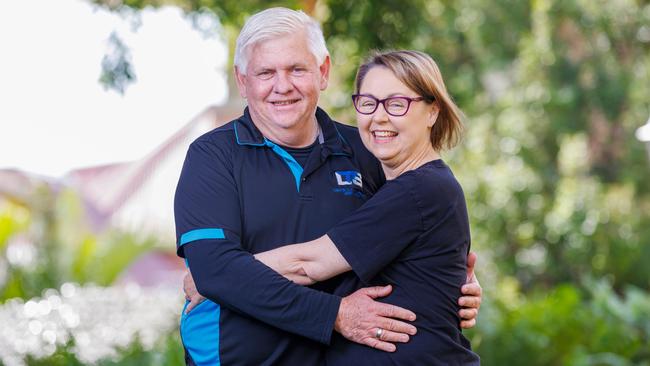Meeting of hearts and minds at Mater Hospital to save bayside stroke sufferer
A meeting ofR hearts and minds has helped to save the life of a bayside woman who has battled a debilitating condition and has lived in constant fear of having a deadly stroke.

Redlands Coast
Don't miss out on the headlines from Redlands Coast. Followed categories will be added to My News.
Heart and minds have been brought together at a Brisbane hospital to help a bayside woman battling a debilitating heart condition.
Wellington Point woman Kerry Thomas, 53, who has lived with a hole in her heart since childhood, has become the first of 20 patients to benefit from a new Heart-Brain Unit at Mater Hospital Brisbane.
Life has been a challenge for the bayside resident who has endured a long and complex health journey before she found help with the Mater’s new specialist stroke team.
This year, she had life-changing surgery with a “closure device” inserted by Mater Private Hospital Brisbane cardiologist Dr Nick Aroney, who is on the new unit’s team.
“I suffered my first major stroke in 2017 when I was on dialysis and being prepped for a kidney transplant,” Ms Thomas said.
“I eventually had my kidney transplant, but then suffered a seizure, which may have developed into a mini stroke during a vacation on the Sunshine Coast in 2021, and then two mini ones again in August last year.
“That’s when I first came to the Mater and they put me under an MRI where they discovered I’d had two mini strokes right below the cerebral gland at the back of my head.
“They determined that they needed to plug the hole in my heart or, as they called it, ‘the tunnel in the heart’.”
The technique involved a keyhole incision in the groin allowing for a small catheter to be inserted up the vein in the leg, across the hole in the heart where a plug can be deployed.
Dr Aroney said the plug was a small mesh device with umbrella-like structures on either end that were released once it was in place.

Ms Thomas now joins a select group who have a much better chance of reduced stroke occurrences with clinical trials showing a 77 per cent risk reduction of stroke.
Around one-in-four people are born with a hole in the heart, a condition that is harmless for many, but potentially deadly for those with a high-risk of stroke.
A hole in the heart occurs when the connection between the heart’s right atria and left atria doesn’t close naturally in the first years of life.
It means that blood clots can travel between the gap, potentially reaching the brain causing a stroke.
Dr Aroney said the new Heart-Brain Unit team of top cardiologists and neurologists was busy devising ways to treat at-risk patients to dramatically reduce their chances of having a stroke.
He said the 25 per cent of adults who have a hole in the heart generally don’t realise.
“For the vast majority of people, a hole in the heart is harmless,” Dr Aroney said.
“There isn’t a screening test for it, however it should be considered as a cause for stroke in patients aged under 60.”
Ms Thomas said her rehabilitation had gone well and she had been discharged from the purpose-designed dedicated Stroke Unit at Mater Neurosciences.
“I’m pretty good. Really, it’s just my speech, which was from the first stroke,” she said.
“I sometimes get my words muddled, so the other day I went to say to my husband, ‘Darren, you’ve got a hot bod, but it came out as ‘Darren, you’re a hot dog’.
“I laugh about it – you’ve got to.”
Mater’s Centre for Neurosciences neurologist Dr Andrew Swayne said Ms Thomas was progressing well and meeting long-term goals.
“She was always a fountain of positivity, despite the health challenges she’s faced in her life; the attitude she brings is quite inspirational,” Dr Swayne said.





